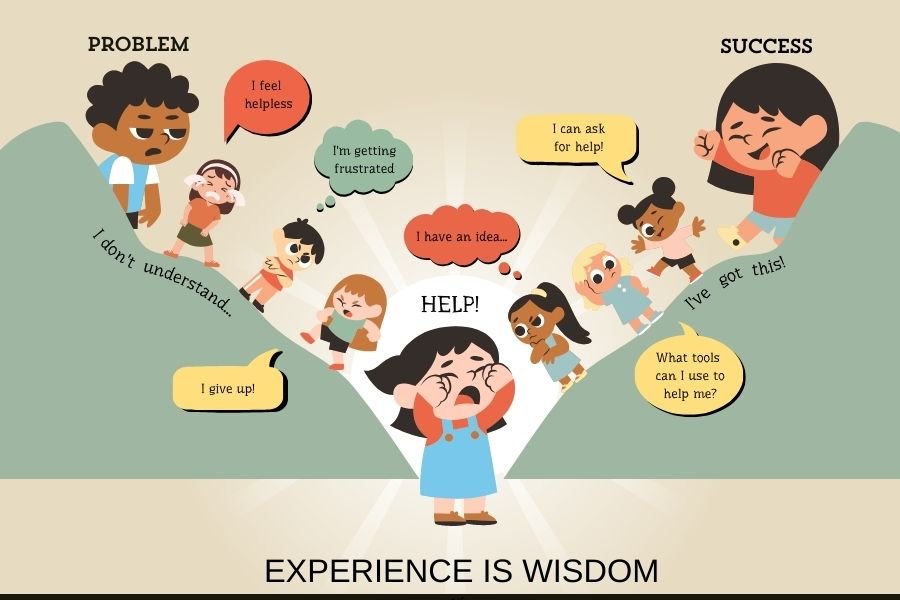The role of a therapist in guiding human emotions and identifying their true nature must be considered. Therapists play a pivotal role in guiding individuals toward healing and self-discovery. They act as mentors for their patients, guiding the mentee toward a better life and healing. A person can only guide healing once that person has a superior knowledge and understanding of the complexities of human emotions and responses.
Hence, a therapist’s effectiveness hinges not only on their technical knowledge and skills but also on their ability to cultivate compassion, sensitivity, and emotional resilience. These three qualities form the bedrock of therapeutic practice, enabling therapists to connect deeply with their clients, navigate the complexities of human suffering, and sustain their well-being amidst the emotional demands of their profession.
Compassion: The Heart of Therapeutic Connection
Compassion means understanding the pain of others and taking action to alleviate it. Aristotle described compassion as a feeling of discomfort at an apparent evil, destructive or painful, that befalls one who does not deserve it and which we might expect to occur ourselves or a friend of ours. It is a core quality in a therapist that can be inherent and cultivated with time and practice.
A compassionate therapist creates a safe, nurturing environment where clients feel seen, heard, and valued. This sense of safety is crucial for clients to open up about their vulnerabilities and traumas. It helps them to better understand the client’s problem from their perspective.
Compassion is not limited to others. Self-compassion is essential for therapists for several reasons:
- Emotional Regulation: It helps therapists manage their emotions, reducing the risk of burnout and compassion fatigue. By practicing self-compassion, therapists can maintain a balanced emotional state, which is crucial for their well-being and effectiveness.
- Modeling Behavior: Therapists who practice self-compassion can also model this behavior for their clients. Therapists can encourage clients to adopt similar attitudes toward themselves by demonstrating self-kindness and acceptance.
- Therapeutic Relationship: A therapist’s self-compassion can positively impact the therapeutic relationship. It can create a more authentic and trusting environment conducive to healing and progress in therapy.
- Preventing Relapse: For therapists who have experienced mental health challenges, self-compassion is a critical element in maintaining cognitive health and preventing relapse. It helps them to be kind to themselves during difficult times and to recognize their common humanity.
In essence, self-compassion is a foundational skill that supports therapists in their professional roles and contributes to their overall quality of life. It’s a practice that benefits them personally and enhances the care they provide to their clients.
Sensitivity: Navigating the Nuances of Human Experience
Sensitivity in therapy involves acknowledging the subtle cues and underlying emotions that clients may express. It requires therapists to be highly observant and perceptive, able to detect shifts in mood, tone, and body language. Sensitivity also includes deeply understanding the diverse cultural, social, and personal contexts that shape each individual’s experience.
When therapists are sensitive to their clients’ cultural, social, and personal backgrounds, they foster a sense of trust. Clients feel respected and understood, essential for a successful therapeutic relationship.
Being sensitive to the nuances of a client’s experiences helps prevent misunderstandings. This is particularly important when dealing with clients from diverse cultural backgrounds, as certain behaviors or expressions may have different meanings.
A one-size-fits-all approach can be detrimental to therapy. Sensitivity allows therapists to tailor their approach to the client’s needs, leading to better mental health outcomes.
Sensitivity is a critical component of cultural competence in therapy, which involves understanding and respecting a client’s beliefs, values, and cultural background. This competence is necessary to cross cultural boundaries between therapists and their clients.
Sensitivity and cultural awareness enable therapists to practice empathy and respect for their client’s unique experiences and perspectives, which is fundamental in providing adequate care.
A sensitive therapist recognizes that every client is unique and tailors their approach to meet each person’s needs and circumstances. This personalized approach fosters trust and rapport, allowing for more effective interventions. Sensitivity also means being aware of the power dynamics inherent in the therapeutic relationship and striving to empower clients rather than impose solutions upon them.
Emotional Resilience: Sustaining the Therapeutic Journey
Emotional resilience is adapting to and recovering from stress and adversity. For therapists, it is an essential quality that enables them to cope with the emotional toll of their work. Regularly encountering clients’ pain and suffering can lead to vicarious trauma, compassion fatigue, or burnout if not managed effectively.
Resilient therapists maintain a balance between empathy and professional detachment. They can deeply engage with their clients’ experiences without becoming overwhelmed. This balance is achieved through robust self-care practices like regular supervision, peer support, and personal therapy. These practices allow therapists to process their emotions, receive feedback, and gain perspective.
If you are a therapist who is looking to work on your skills, then you can cultivate emotional resilience, compassion, and sensitivity in your life through several practices:
- Self-compassion: It is the practice of Acknowledging one’s humanity and accepting that imperfection is part of the human experience. It involves treating oneself with kindness, understanding, and forgiveness, especially during challenging times.
- Mindfulness: Engaging in mindfulness practices can help therapists remain present and attentive to their own experiences and those of their clients. This can enhance their ability to respond with compassion and sensitivity.
- Physical Self-Care: Physical health is essential. Adequate rest, nutrition, and exercise can support emotional well-being and resilience.
- Professional Development: Continuously learning and engaging in professional development can help therapists stay informed about the latest research and techniques in fostering emotional resilience and compassion.
- Peer Support: Building a network of supportive colleagues can provide a space for sharing experiences, seeking advice, and receiving empathy, which can reinforce a therapist’s emotional resilience and compassion.
- Reflective Practice: Regularly reflecting on one’s work and emotional responses can help therapists understand their triggers and develop strategies to manage them effectively.
- Setting Boundaries: Establishing clear personal and professional boundaries can prevent burnout and allow therapists to maintain their capacity for compassion and sensitivity.
- Compassion-Focused Therapy (CFT): Therapists can explore CFT techniques such as compassionate imagery, letter writing, and mindfulness to cultivate compassion towards themselves and others.
A therapist’s mind is a complex interplay of compassion, sensitivity, and emotional resilience. These qualities are sometimes innate but can be developed and strengthened through intentional practice and self-awareness. Therapists cultivate compassion to create a safe and supportive environment for their clients. Through sensitivity, they navigate the intricate nuances of human experience with empathy. By building emotional resilience, they sustain their well-being, ensuring they can continue to provide effective and compassionate care over the long term.
In essence, the cultivation of these qualities transforms the therapeutic process into a profound journey of connection, healing, and growth for both clients and therapists alike. The ongoing commitment to developing compassion, sensitivity, and resilience ultimately defines the mind of a genuinely effective and empathetic therapist, and we at Antaha firmly believe in this approach and provide resources to develop these crucial qualities, which is a must-have for all therapists.
Join us now in this journey where we will venture together to create, unlearn, and relearn the concepts of these very intricate qualities to continue our cause of helping others. The link for the curriculum will be given below. You are just one click away from becoming one of the best versions of yourself who will continue helping people to the best of their capabilities. See you soon!














